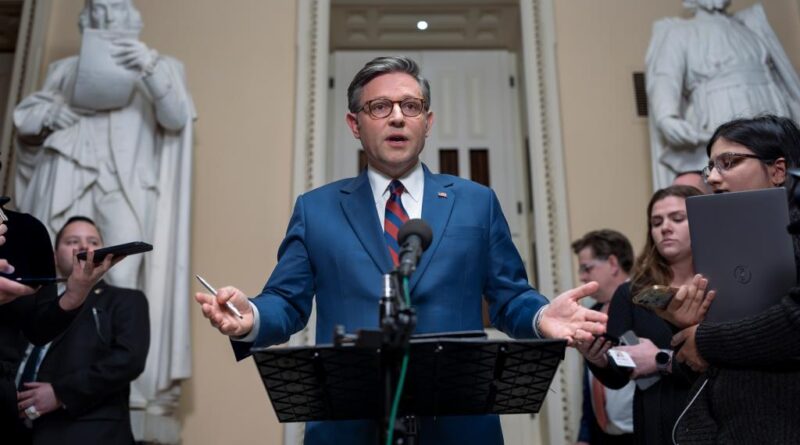GOP’s Budget Uprising Indicates a Move Toward Fiscal Responsibility — But It’s Only the Beginning

It feels reminiscent of 2013.
During that time, a struggling Republican House speaker found himself forced into a government shutdown by hardliners within his own party who deemed him inadequate in terms of ideological purity.
Despite the significant shifts in GOP politics since then, here we are again, with a weary Republican speaker of the House on the brink of a government shutdown, facing similar pressures from rebellious members of his party who still perceive him as not pure enough.
The key difference is that Mike Johnson — unlike his predecessor, John Boehner — is confronting not only an internal uprising among his party members.
He is also contending with the world’s most influential Republican, Donald Trump, and his powerful ally, Elon Musk, turning against his initiatives.
Johnson did stumble with the so-called continuing resolution designed to maintain government funding past an impending deadline.
He incorporated Republican priorities, then, aiming to appease the Democrats who control the Senate and the White House, also added Democratic priorities.
What was intended to be a temporary measure to prevent a government shutdown morphed into a last-minute, 1,500-page bill that effectively enacted new legislation, with little chance of it being thoroughly reviewed by lawmakers.
This unresolved situation underscores the persistent Republican animosity toward spending, even a decade after the Tea Party upheaval inflicted suffering on establishment figures like John Boehner, who faced demands for significant deficit reduction.
However, this response has evolved into a different expression.
Now, it manifests as a fierce opposition to “the swamp” — symbolic of normal legislative practices — and an enthusiasm for Musk’s proposed DOGE, the Department of Government Efficiency.
The ongoing bipartisan consensus in Washington, DC, that endorses continuous increased spending is indeed scandalous, and DOGE could foster innovation and reform.
Nonetheless, both points are somewhat irrelevant when considering the impending crisis posed by unchecked federal debt that could produce a severe fiscal disaster at some future date — potentially not tomorrow or even in several years.
There are plenty of foolish programs and pointless regulations, but the money available from the federal budget is relatively small.
Most federal expenditures enjoy substantial public support, making it incredibly difficult to rein in a $6.8 trillion budget that appears to be an attractive target.
The fiscal math remains as unforgiving as ever.
Social Security, Medicare, veterans’ benefits, and other health initiatives represent over half of the federal budget. One of Trump’s defining commitments was to leave Medicare and Social Security untouched.
Then there’s the interest on the national debt and defense spending, which together consume approximately another $2 trillion annually.
What remains is a trivial amount in the grand scheme of things — and even the programs in this sector have their dedicated supporters.
If the budget is ever to be placed on a more rational path, a strong public case for a comprehensive reform agenda, including entitlements like Social Security and Medicare, becomes essential.
This endeavor is politically fraught, which explains why the Republican Party abandoned it long ago. It’s far simpler and more gratifying to scuttle blatantly absurd year-end spending bills and place lofty hopes in DOGE.
It’s noteworthy what else transpired in Washington while Mike Johnson’s first continuing resolution went awry.
The Senate passed, with bipartisan support, the Social Security Fairness Act, projected to cost approximately $200 billion over the next decade.
It was inconsequential that many experts from across the political spectrum believe this legislation is a poorly conceived giveaway to public employees and is fundamentally a bad idea.
DOGE will struggle to recover that funding.
Musk and Vivek Ramaswamy have proposed eliminating a significant number of federal positions. As per the Congressional Budget Office, in 2022, the federal government’s civilian workforce numbered 2.3 million, costing $271 billion.
A 10% reduction in federal employees, which would be a notable achievement, might cover the 10-year expense of the Social Security Fairness Act, but it essentially treads water fiscally.
This echoes another similarity to 2013: despite the chaos and commotion, it is improbable that anything will fundamentally change our troubling fiscal trajectory.
Twitter: @RichLowry



